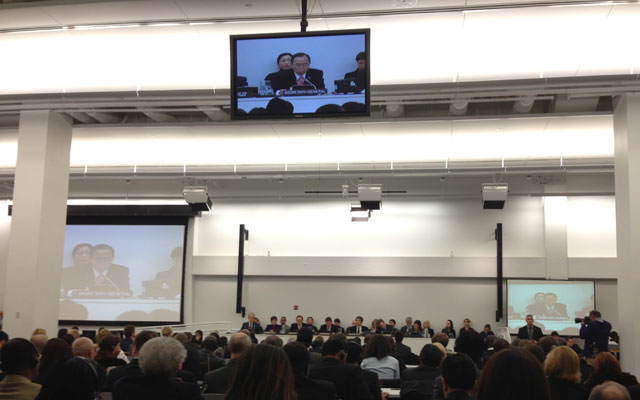On February 26, the American Bar Association’s (ABA) Center for Human Rights issued a white paper on the U.N. Arms Trade Treaty (ATT), which concludes that “the proposed ATT is consistent with the Second Amendment.” This conclusion neglects important facts about the treaty and the processes surrounding it, which we have explored in this four-part series.
We have shown that while we agree with several of the ABA’s contentions, it ignores the fact that the ATT—like many treaties—is not designed for a nation with a federal structure like the U.S. The ABA also ignores the fact that the ATT goes beyond import restrictions on firearms by requiring signatories to prevent the domestic diversion of imports. The treaty may also invite the executive branch to take executive actions to restrict and control the import of firearms into the U.S., imports which comprise about 35 percent of the new firearms market.
Finally, the treaty raises broader concerns about the application of transnational law to the U.S. These concerns are heightened by the fact that both foreign nations and some prominent legal scholars have identified treaties like the ATT as a mechanism to pressure the U.S. to change its domestic policies, and even to change the interpretation of the U.S. Constitution, including the Second Amendment.
The question, then, is what the U.S. should do about this. The U.S. is sensitive to allegations that it is failing to fulfill treaty commitments, and it rightly takes its treaty obligations seriously. Because the ATT is a process that is designed to evolve and grow, it is impossible to know where it will lead.
A new ATT conference begins today in New York, and we will be blogging from the conference.
Supporters of the ATT frequently defend it as entirely unrelated to the Second Amendment. Some opponents of the ATT criticize it as a nefarious plot against the Second Amendment. The truth is more complicated: The ATT poses a series of prudential risks in many policy areas, including foreign policy and domestic commerce; risks that may evolve over time.
For these reasons, the U.S. cannot safely sign or properly ratify this treaty. The U.S. should therefore make it clear that, if an ATT is negotiated, it does not recognize the treaty as customary international law, or as imposing any obligations upon the U.S.
